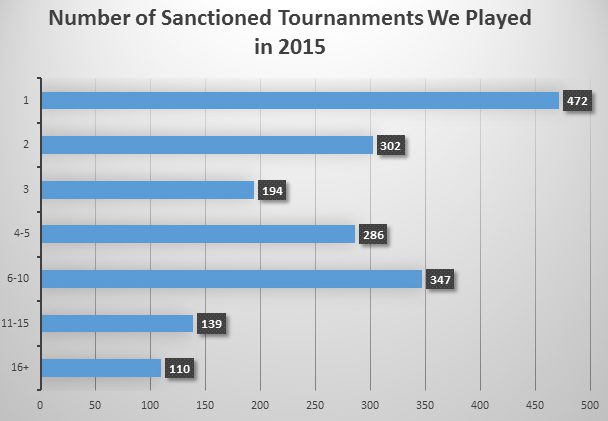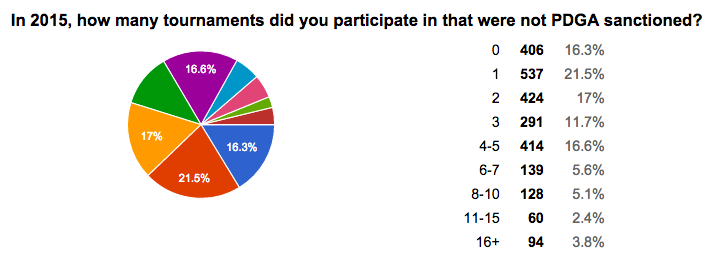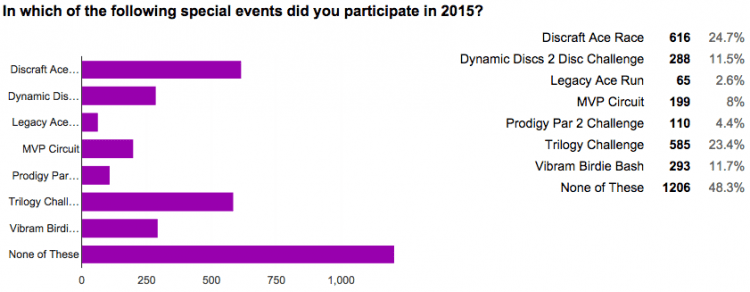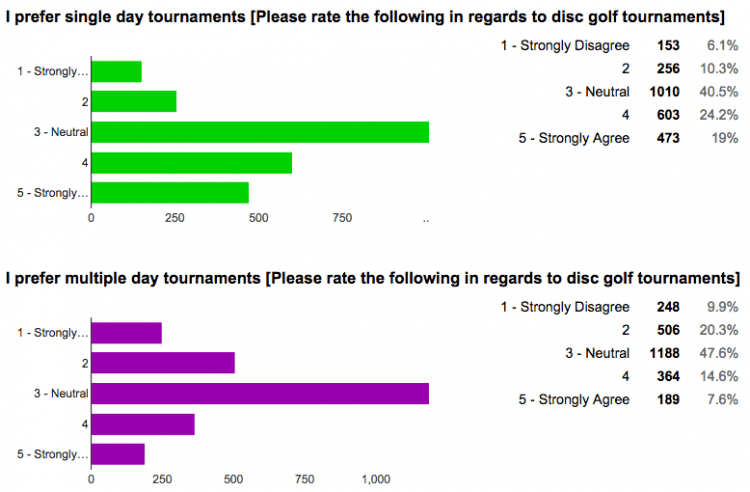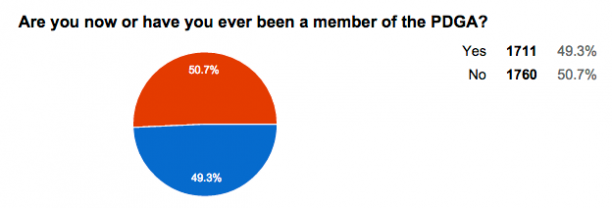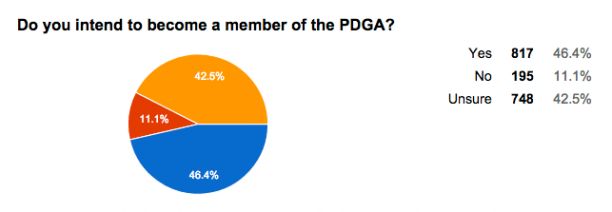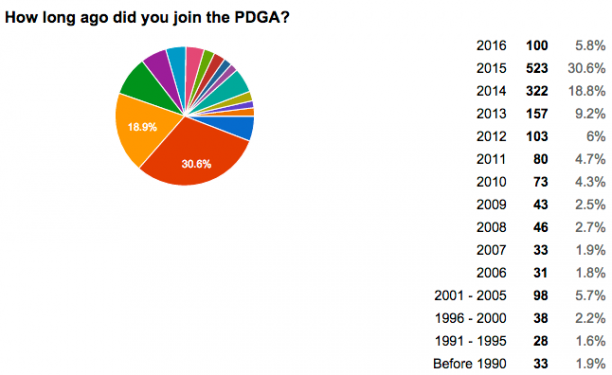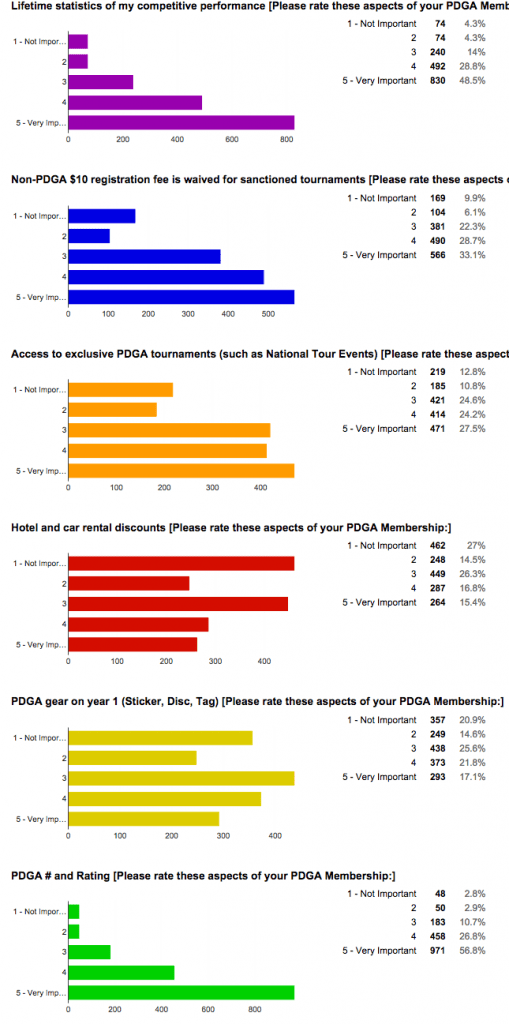The Coexistence of Disc Golf and Traditional “Ball” Golf
This weekend Northern Utah will host the Pureline Championships disc golf tournament on the Sherwood Hills “ball golf” course. The TD, Steve Suhaka, has spent countless hours meeting and negotiating with the course owners and groundskeepers to allow us to have this tournament there. The price agreed on to reserve the course for the day is not cheap, but the course is amazing, and we’re hoping that this tournament will open doors for potential of a future permanent disc golf solution on this underutilized land.
I don’t have financial numbers, but know from general observation that this golf course is rarely (if ever), at full capacity. The course, including 200 acres of land and a nice club house is currently listed for sale for just $2,000,000, which leads me believe that the golf course itself is not very profitable. When I called to make a “tee time” to play a round this afternoon and the course pro admitted that it’s never busy so reserving tee times isn’t necessary.
Why are the course owners opposed to having disc golf on golf courses if it has potential to bring extra revenue for almost no additional cost?
I went with Steve to one of the negotiating meetings with the owner (an elderly lady in her seventies) and it seemed that her two big concerns were:
- It would interfere with the “ball” golfers experience.
- The discs would cause damage to the greens, and nice greens are where the money is made.
I saw this video on my Facebook feed this morning posted by Dude Apparel that illustrates the cultural judgements of Skiiers attitudes towards Snowboarders in the 1980’s.
When this news report was filmed, ski resort operators simply refused to allow snowboarders to ride their lifts. A similar attitude likely exists between many “golfers” and disc golfers. The reason they are likely opposed for now is because they don’t fully understand.
Is this a real issue? Is it simply judgments and stereotyping that make it difficult to get disc golf on ball golf courses, or are there negative consequences that make having the disc golf option a bad idea?
After having the temp course in for two days the feedback has been overwhelmingly positive. The course manager has even requested that we leave the baskets up for a few more days. Now that it appears we have overcome the stereotyping and potential conflicts, it looks like having a coinciding permanent disc golf course might indeed be a real option.
If we look at golfing trends, a disc golf option really is something many golf courses should consider.
Graphs Comparing the Growth of Disc Golf and the Decline in Ball Golf
Here are trends showing the number of golfers in the United States according to the National Golf Foundation. As you can see, the trend over the past five years has been declining for both “total golfers” and “committed golfers”.
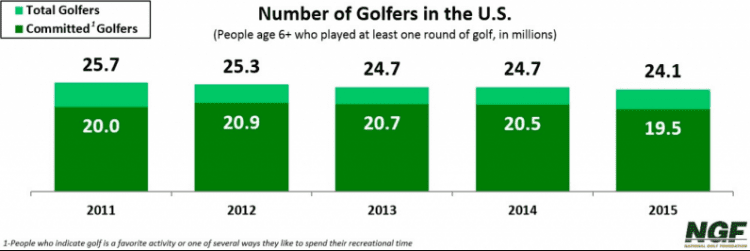
Number of Traditional Golf vs Disc Golf Courses
While the number of open ball golf courses has declined for the last decade, the number of disc golf courses have dramatically risen in most areas.
This Graph is not an apples to apples comparison, but the trends are clear. For statistics used in the graph, ball golf only counts 9 hole courses as a “half” course, and the number of disc golf courses displayed is any sized course including the little 6 holer. In addition, I was unable to dig up US only courses, so the disc golf course statistics displays course throughout the world and not just in the US.
In Utah unprofitable golf courses, many of which are publicly owned, are a big problem for local governments and economies. Many cities have had to spend public taxpayer funds to pay the bills because the golf course revenue alone is not self sustaining. In recent years, several courses throughout the state have been shut down because they simply lost too much money. The question of what to do with the current public golf courses has been a political hot topic. One of these courses, the Jordan River Par three course, was completely shut down as an operating golf course and has now been transformed into a permanent disc golf course that requires very little public maintenance. With disc golf, they don’t have to maintain expensive greens and fairways or mow as often. At the Jordan River course, it doesn’t even look like they water a good portion of the disc golf course.
What Disc Golfers are Willing to Pay for a Round of Gold
The reality is that most disc golf courses are in public areas that are free to play. In general, disc golfers are used to playing a round without financial constraint. However, if the course is excellent and well maintained, almost all disc golfers are willing to pay for a round of golf.
From the 2016 State of Disc Golf Survey we see that 95.6% of disc golfers are willing to pay up to $3 for a round and almost 90% are willing to pay up to $5. There starts to be a significant decline when the rounds get more costly, but more than half–53.6% of respondents said that they are willing to play up to $10 per round.
While the average disc golfer isn’t willing to pay as much per round as the average ball golfer, they are willing to pay to play. Perhaps many financially strained and closing golf courses could remain open by creating additional revenue streams through disc golf, even if disc golf is only available during non peak hours.
The 9 hole Mulligans golf course in Ogden, Utah is now also a championship level disc golf course used for the Utah Open, a premier tournament that will be on the 2017 Disc Golf Pro Tour. With the way things seem to be going with our trial experience, perhaps we will also see the Sherwood Hills golf course on this exclusive tour.
Have you played disc golf on a ball golf course? If so where is the course at, and what was your experience?



